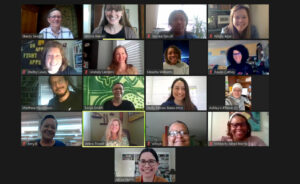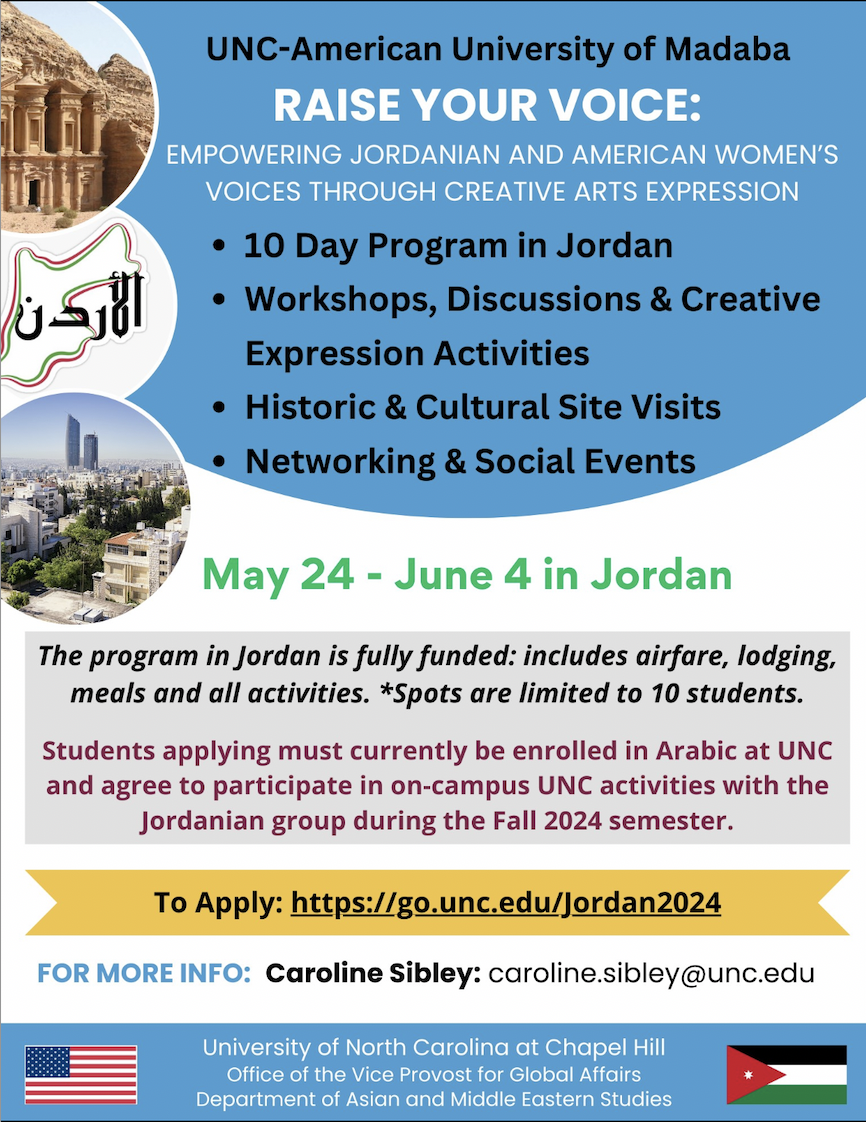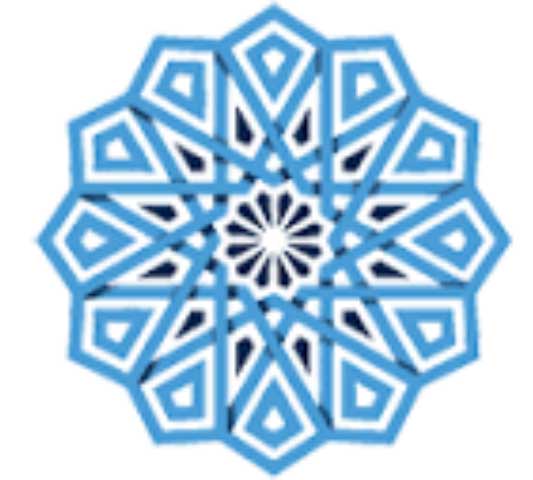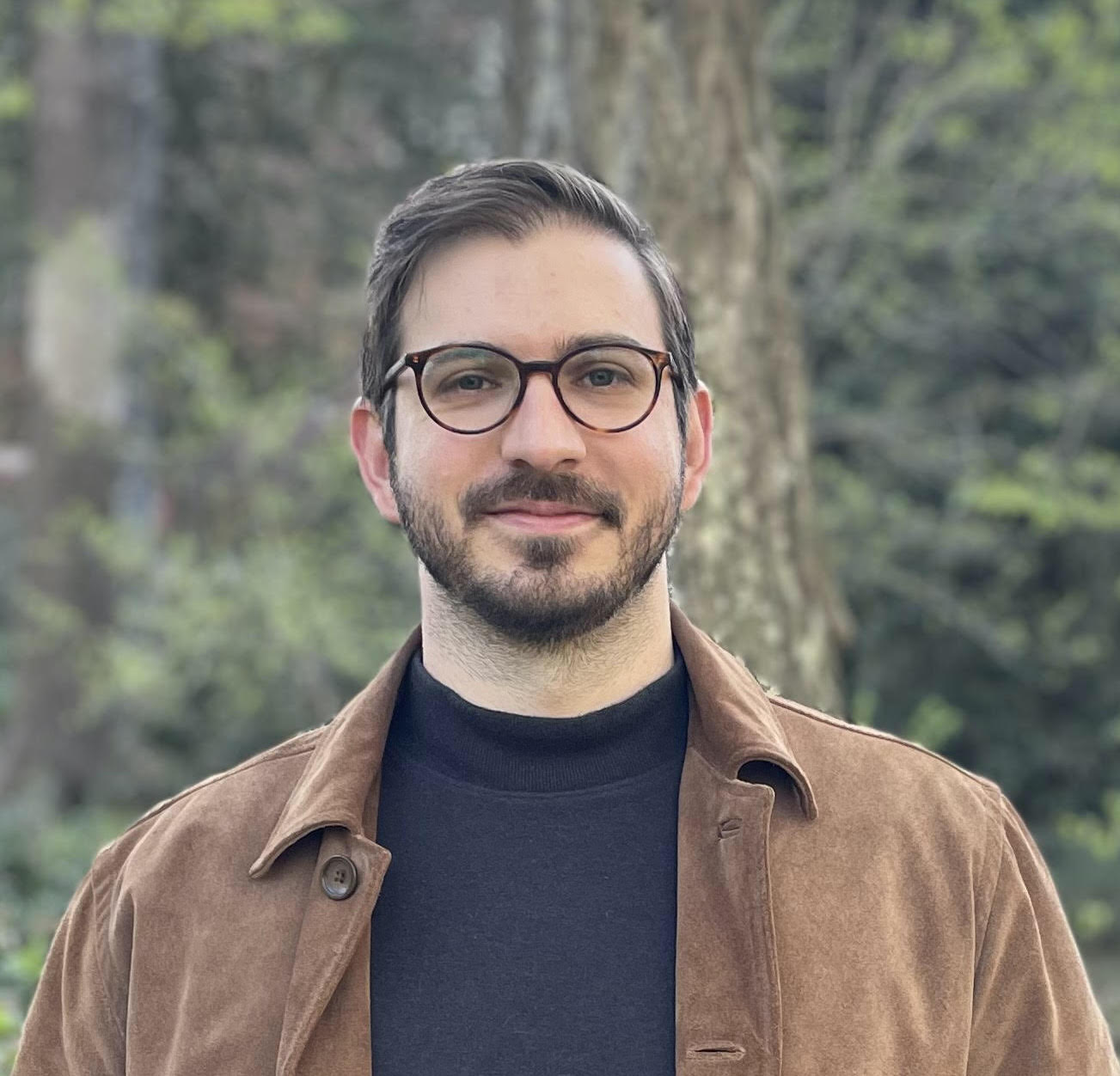
The 2020 Middle East and African Cultures Teacher Fellows participate in a program on Zoom.
The fellowship aims to increase teachers’ knowledge of Middle Eastern and African history, culture and diaspora by introducing educators to places and communities across North Carolina that have connections to these regions. Participating fellows represented elementary, middle and high schools from 12 counties across the state.
The program began with four orientation workshops throughout the spring and summer. These sessions provided important content and context for teaching about Africa and the Middle East in the K-12 setting, including presentations by Charles Kurzman, co-director of the Center for Middle East and Islamic Studies at UNC-Chapel Hill, and Emily Burrill, director of the African Studies Center at UNC-Chapel Hill.
Another session in the orientation series, led by Bud Kauffman, teaching associate professor of Arabic at UNC-Chapel Hill, and Amanda Maples, curator of African art at the NC Museum of Art, offered an introduction to arts and cultures in the Middle East and Africa. This was followed by “Culturally Relevant Pedagogy for Distance Learning,” a session presented by Brian Gibbs, clinical assistant professor at the UNC School of Education. The fellows also participated in asynchronous modules and shared their learning on a Google Classroom page to further discussion.
In the fall, the fellows participated in a series of virtual site visits with partners around the state, including workshops with the Khayrallah Center for Lebanese Diaspora Studies at North Carolina State University; the North Carolina African Services Coalition, a refugee resettlement agency in Greensboro; and the Masjid Omar Ibn Sayyid in Fayetteville.

Fellows were shipped spices and Moroccan tea to their homes for an at-home multisensory activity.
“The session that stood out the most to me was the virtual site visit to do with food and it’s connection to culture,” shared Measha Williams, a literature teacher at Northern Granville Middle School. “I loved being able to see how to prepare Moroccan tea and also learning about culinary globalization.”
As part of each workshop in the series, teachers were provided with readings and materials they could implement in their classroom. For Kelsey Agar, an English teacher at Mooresville High School, the program provided context important to discussing both regions in the classroom: “The MEAC program has provided me and my students with access to a fuller historical context to help us grasp the level of complexity behind the headlines we often read.”
As part of their experience in the program, the fellows developed a classroom project with content on the Middle East or Africa, to share with educators around the state. “By participating in the program, I not only learned about new topics concerning the Middle East and Africa but was pushed to consider my curriculum and how students respond to it” reflected Alicia Morris, a middle school social studies educator at Cary Academy. The presentations, blogs, websites, and lesson plans created by the MEAC fellows are available on the MEAC 2020 program webpage.
The Middle East and African Cultures Teacher Fellows Program is a collaboration of the UNC African Studies Center and the Duke-UNC Consortium for Middle East Studies. This program is funded by Title VI funding from the U.S. Department of Education.





